Above: “Sick man at the walls of a Catholic monastery,” by Fyodor Bronnikov (1874).
“If a person can build a fence around himself, he is bound to do it.” – Aleksandr Solzhenitsyn
One day, I just got in my beat-up old Volvo and drove out of San Francisco. I took with me: my clothes, some personal belongings, and my battered and bruised body. My soul wasn’t in much better shape, but I had long forgotten that it was even there. After years of trying to kill myself, I suddenly wanted to live. I wasn’t sure why. I didn’t believe in an afterlife; I didn’t even believe in heaven, but I acknowledged that there was a hell – after I saw it. I longed for death, because I thought it would mark the cessation of my lifelong suffering. But that’s not what it was for me. My passing from this world could only ensure that my suffering would continue – forever. That was my idea of hell. That I would go on living like I was.
In order to live, I first had to regain a modicum of my health. Which took months. Even then, after turning only thirty, I was an old man. The years had taken their toll on me. I grew up a bullied and lonely boy. When I was a child, I would have traded anything for a friend. By the time I reached my late-teens, I did. But then, I didn’t know the price I’d eventually have to pay. Even though I had been betrayed by one of the few men to take an interest in me, I was still dangerously naive and overly trusting. But I longed for that which had been denied to me – a community; especially a community of men where I could feel safe and protected.
I never found it. Instead, I went home. I was the proverbial prodigal son, who swore he’d never go back again. Even if I had to sleep with pigs. But it’s easy to be confident and proud when you’re not covered in dirt, blood, and spittle. Once everything I believed proved to be untrue, I was willing to give another chance to all those things I had formerly disregarded. One of them was the Catholic Church.
At first, I collapsed at the door of the Church, and they told me to go back from where I came from.
Although I viewed every Catholic priest with extreme suspicion, I eventually met a good one. He was kind to me. Caring but stern – like a good father. At least, for a while, he renewed my faith in men, the priesthood, and Catholicism. Yet, in many ways, he was a man fighting a hopeless battle – not with the dark forces of a secular society, but with his own Church. It didn’t end well for him. In fact, every Catholic priest who actually helped me back then either had a tragic end or simply lost the will to continue.
Because I still desperately yearned for male affirmation, I sought out friendships with priests. Most of them, sensing my inner struggle, tried to provide spiritual direction and they didn’t seem to mind when I hung around after Mass – helping out in the sacristy, asking endless questions, or later inviting them out for lunch. Over time, I shared with them my lifelong struggle in the Catholic Church. Not to add to my burden, or to discourage me, but I think simply to commiserate, or because they probably thought they found someone who could understand, most of the priests shared with me their own personal suffering.
The first story I ever heard was from that first good priest I met. A humble man. He took Catholicism seriously. Unlike the LGBTQ activist priests who assured me that God made me gay, he actually treated me like a man and not a special case; he didn’t see me through a rainbow lens. Consequently, I trusted him. And, he trusted me. Through this mutual confidence, I learned about how the Catholic Church on the diocesan level was essentially an oppressive courtier system that rewarded the bishop’s favorites and persecuted those who placed the welfare of the faithful (namely the individual) over a sense of blind obedience to a bureaucratic authority. As much as I admired this priest, I reached a point when I no longer could silently standby and watch as he was browbeaten and psychologically manipulated by the chancery. In addition, as an associate pastor, he had little control over the parish liturgies, therefore, at times, they became a semi-farcical folk-music jamboree. Sensing my frustration, he actually advised that I go elsewhere – namely to the traditional Latin Mass (TLM). I had no idea what that was.
I didn’t really know where he was sending me, but I went. Because of the turmoil I witnessed around this priest, and due to some of my own recent experiences with other priests of a divergent theological bent, I was ready to leave the Church. And, I think he knew it.
The TLM Mass was at a dumpy little parish in a neighboring diocese. The challenged neighborhood bordered on scary; a chain-link fence surrounded the small parish parking lot. A few Sundays later, I was warned by a thoughtful fellow parishioner about leaving my car outside the enclosed perimeter.
From the moment I walked into that rather ugly church in an underprivileged part of town, I immediately believed that I found a refuge. During the Mass, there wasn’t the jangle of tambourines nor the strumming of guitars. The sanctuary wasn’t crowded with female servers, lectors, or eucharist ministers. Unlike every other encounter I ever had with Catholicism – there were men in the pews; and they weren’t aged, falling asleep, or endlessly staring at their watch. And, the priests, like these husbands and fathers, were young, confident, and thoughtful. Women were certainly not absent from the very family-centered culture that surrounded the TLM, but they didn’t dominate it either.
After enduring years of abuse and frustration, I thought I finally found somewhere that felt good and right. Generally, I was accepted although the majority of the parishioners were comprised of large families. However, one of the greatest benefits I gained from this community wasn’t directly related to the liturgy, but involved the edification I received from simply observing healthy male role-models. And for a while, I nearly forgot my old friends; and the past. Except when I was confronted with it: priests who had considered me a close confidant were still being mistreated by their bishops and those I once regarded as my family were being deceived in gay Catholic enclaves – the bishops did nothing. And, even at the TLM, there was an overly thankful and gracious attitude towards the local ordinary; after-all, he allowed us to have the Mass. He permitted it? This situation goes part and parcel with an abusive mindset: successful abusers are not always sadistic and cruel; sometimes they relent, and are even capable of great kindness. For a time, they will leave you alone. Because you’re under their control. I knew I was being manipulated. I couldn’t concentrate. I felt guilty. So, l left.
Immediately, it was like leaving Brigadoon. I wondered: Had I been hiding or just taking care of myself – and my own soul. A bit of both, I supposed. But at what cost?
When I first started attending the TLM, they were noticeably difficult to locate; and most of the time, TLM parishes did not occupy their own space in the Catholic Church – they shared a narrow window for a couple of hours at an out-of-the-way diocesan parish. Later, that all changed. I think some middling bishops always allowed at least a couple of parishes in their diocese to swerve fairly hard to the left: liturgical experimentation, social justice-political action, and LGBTQ activism. In a way, it collected those more progressive Catholics at a central location – it was a form of management and seemingly a benevolent acquiescence to the needs of the faithful. The same thing eventually happened at the other end of Catholic spectrum. I think a number of bishops viewed the TLM as a Ritalin prescription for a group of unruly and troublesome Catholics who refused to behave.
But I stopped taking my pills.
For the most part, the majority of TLM priests I knew were more than willing to publicly criticize the easily recognizable failings of the sexual revolution, a contraceptive mentality, and the excesses of the gay community. But they wouldn’t speak out against the local ordinary who allowed a flag-waving, parade-marching, pro-LGBTQ ministry at the church across town. I didn’t blame them; and I understood their reasoning – one sermon that would probably end their vocation as opposed to continuing all of the important work at a thriving parish. But that was little comfort to me, because I knew, in the name of Catholicism, what was taking place inside the same diocese. In my mind, a Church that permitted the beauty of the TLM to exist simultaneously with the profanation of a “pride” Mass, will eventually destroy itself.
Recently, alongside a rise in popularity of the TLM among US Catholics, especially those who are younger, there is a larger societal population shift towards “red” States. Over the last few years, I have seen many of those closest to me leave California. Although I miss them, I sympathize with their justifications for moving to other States: home affordability, a less radical political structure, and a more family-friendly living environment. Many of their motivations for leaving California somewhat mirrored why I went to the TLM twenty years before. I instinctively knew something was wrong in the Church, I wasn’t educated and I could not articulate why I believed this, but I knew I had to do something. I wanted to belong to a community of shared-values; I wanted to get away from an abusive and unhealthy atmosphere; I wanted to have hope.
Every once and a while someone I don’t know very well will ask me why I haven’t left California yet. Although there are several considerations that would prevent such a move; primarily I don’t leave because there are people who depend upon me. I can’t leave them. Sometimes on the same day, someone who I don’t know very well (usually not at all – as they are only familiar with me through social media platforms) will ask me why I haven’t gone to the TLM Mass. I usually tell them, that I started attending the TLM – in 1999. At the time, I believed so fully in the power of the Traditional Latin Mass, and in the handful of bishops back then who supported it, and in the religious communities and priests who celebrated the TLM, and in the lay people who clustered around those bishops, religious communities, and priests, that I left behind my former life and moved to the other side of the country. I thought I’d be safe, but I was abused there too.
When I got back to California, I felt betrayed – again. I didn’t return to the same TLM community that I attended before I left. In a nearby town, as always seemed the case in an area where a diocesan approved TLM was permitted by the bishop, another religious order had long celebrated the Latin Mass; except these priests were not in full-communion with the Vatican. All the better, I thought. They weren’t afraid to criticize a bishop – by name; but I wondered how much it really mattered. Before the onset of “cancel culture,” these priests had been somewhat neutralized by the Vatican in the minds of many Catholics; they were fringe. Reminded me of the famous pro-LGBTQ Jesuit John J. McNeill; as a semi-closeted priest, his books and lectures caused a stir in the Church during the 1970s and 80s. After he became increasingly candid, came-out as gay, and publicly partnered-up with another man, the Jesuits distanced themselves from him – and his impact upon Catholic discourse was greatly diminished. If you play the game, you can stay. Go too far, say too much, and it’s over.
Except, the insular outlook that I observed earlier at other TLM communities manifested itself as even more self-guarded. In my opinion, this bunker approach was partially a response to the vast corruption and negligence which exists in Catholicism. Trauma victims often exhibit a comparable reaction which includes dissociation and avoidance behaviors in daily life – taken to the extreme, this can result in agoraphobia. I know this form of suffering very well; and people become overwhelmed. Because this is a two-front war: with opponents in the secular world and within the Church itself. I discovered that reality rather quickly when I began to outreach in the LGBTQ community. After talking with several gay Catholics, I realized that the vast majority of disinformation concerning homosexuality and Christianity, was not coming from the secular activists, but from Catholic priests. I couldn’t fight this. At that point, it wasn’t so much that the predators, enablers, and the walking vomitory projectiles in the Church so much ignored the visible wounds, but violated them.
But I continued to be stubbornly prone to sheltering in place at the Latin Mass; more so than ever. So, I dug down even deeper. When ideas, institutions, and societies begin to decline, people tend to coalesce into narrower identity groups; hence the ever-increasing number of sexual identities that the activists have clunkily tried to reunite into the ever-expanding LGBTQIA+ initialism. Eventually, I started going to Mass at a sedevacantist parish. I think this is the end game of the TLM within a dysfunctional institution. One day, I quite going to that too. It became like a post-apocalyptic dark age monastery; where everything outside the walls of a little church was indeterminate or nonexistent. The Church wasn’t universal, but extremely localized; back in San Francisco, the gay Catholics clung to their rainbow stole wearing priests. Right before I decided to stop going to the sedevacantist Mass, someone advised me that I should only go to Confession to our priest. In hindsight, at least they were honest. At least, they stopped pretending.
In the midst of the COVID-19 pandemic, the majority of bishops and priests displayed their irrelevancy as they hide inside their chancery and rectory like something out of Boccaccio’s “Decameron;” playacting as if a live-stream Mass is the real thing. Essentially, bishops have been merely roleplaying for decades.
In the end, priests will do what they are told; they will cover-up what they are told to cover-up, and bow before those they are told to bow before. Or there will be no TLM. I’ve seen it. Some rationalize their decision to remain quiet, because they believe their continued presence in the Church results in a greater good. But at what cost? Others, despite the repercussions, speak out against the abuse and corruption. But, they do so at great personal peril. Does anyone think it will end well for any priest (no matter which Mass he primarily offers – the TLM or the Novus Ordo) who questions hierarchal authority? Ask McCarrick whistle-blower Fr. Mark White.
The TLM is like moving from California to Idaho, Texas, or Florida. There, you and your family will be safe for a while. But what happens if the United States begins to pull apart or disintegrate? Those “red” States will have two choices: remain faithful to a crippled and corrupt central bureaucracy or breakaway and try to continue on their own. The TLM can’t save the Church; just like Texas (or Idaho or Florida) cannot save the rest of the US; at best, they can only save themselves. And start over.
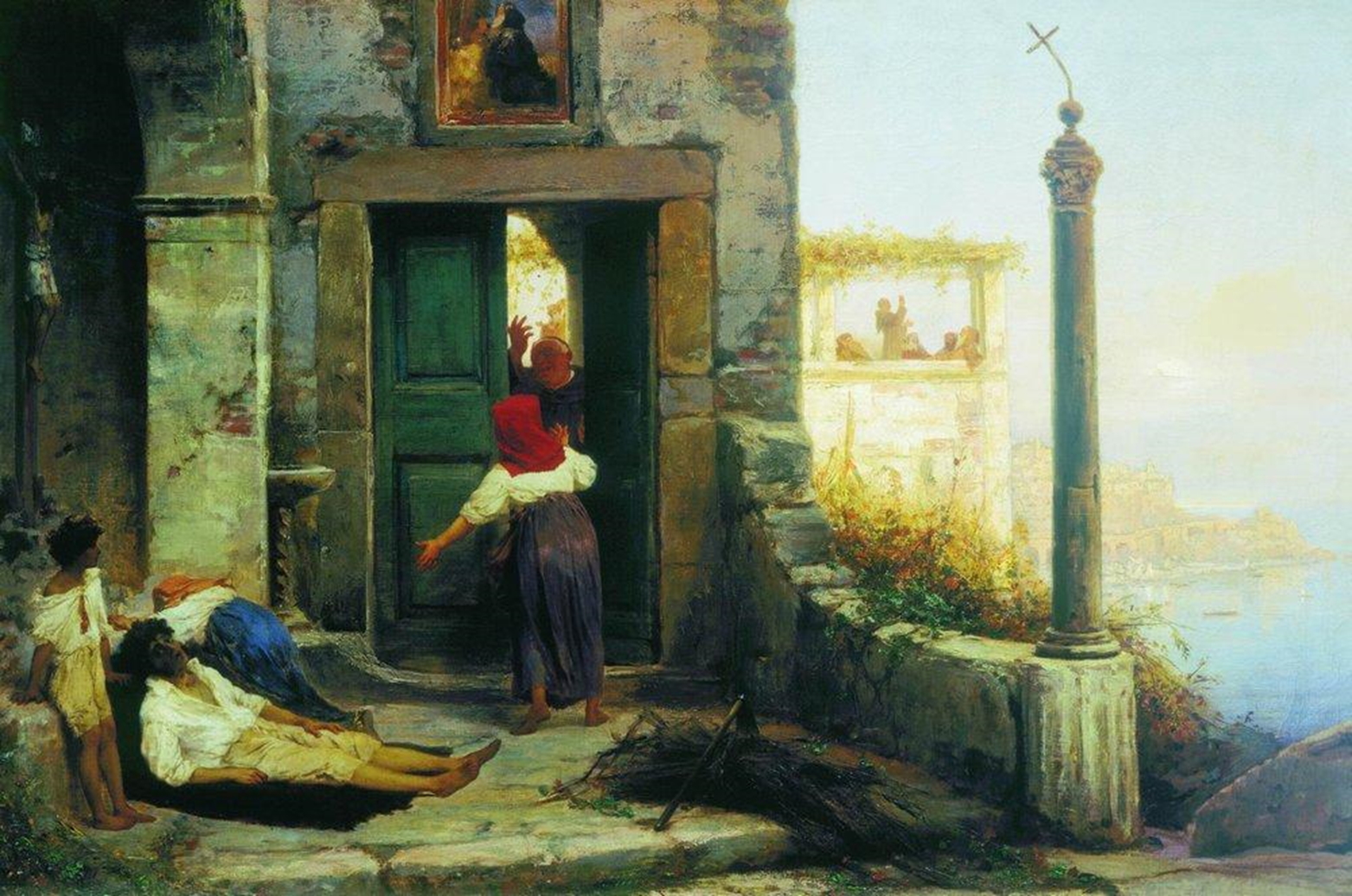
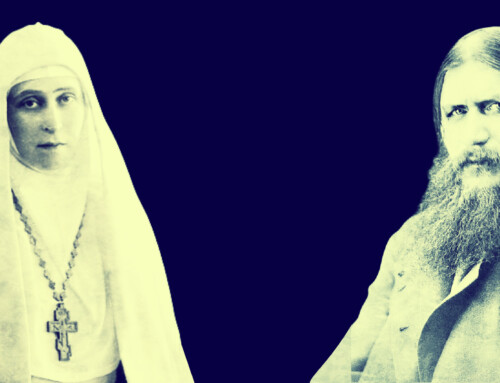
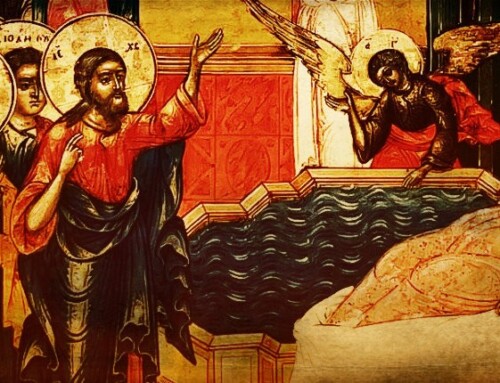
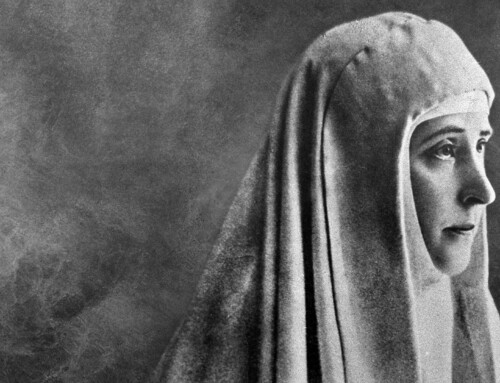
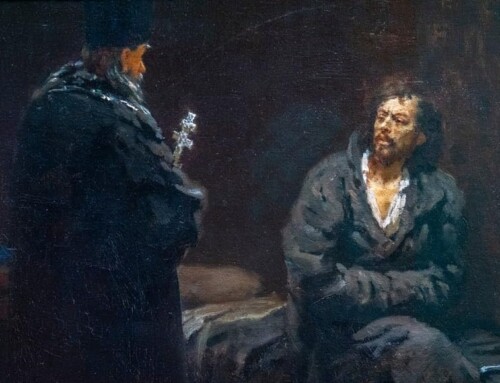
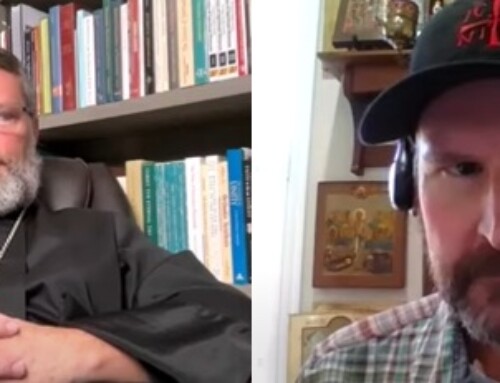
I’m slightly confused by this. The Catholic Church has already been saved through the Precious Blood of Our Lord Jesus Christ. In what way does it still need to BE “saved”. We may not like it the way it is, but that has no bearing on salvation.
I’m having a hard time figuring out why the author is so obsessed with what everyone else is doing. Why is it so important for him to be constantly affirmed that he has chosen the right path for himself? Perhaps I misunderstood, but it seems as if the author is equating insufficient verbalization of objections to what other priests and parishes are doing with abuse. (Obviously, if the author is referring to sexual abuse TLM priests or other adherents afflicted on him that is something else). Weekly Mass attendance, receiving the Eucharist, living your own truth should be enough. Needing to hear priests ranting and raving about other people’s decisions seems misguided, at best, and desperate (or worse), at worst.
This is a good discussion as usual. Can I say something from the point of view of a person who attends the TLM?
– The reason for attending that mass in my case is in order to properly worship God, which you cannot do in the Novus Ordo. I did at one time think it would also be a safe place for me and my family, but I was soon disabused of that. (I have been banned from attending SSPX masses, for example, because of refusing to apologize to a child abuser after spitting in his face in the crying room.) I also go to Ukrainian Catholic masses for the same reason – it is a traditional liturgy of the Church in which you can worship God. I have thought of changing to the Eastern rite, but I don’t like to run out on the poor Latin rite in its worst hour. The Latin Rite to me is a thing in itself to which loyalty and support is due, independently of the shortcomings (or strengths for that matter) of the people who attend it and celebrate it.
– In my experience you can find faithful Catholics to associate with in TLM circles, and even a few decent priests who are doing their job under appalling circumstances. It is a matter of individuals, but maybe it always was like that when you got down to it.
Thank you for writing this, Joseph. I think you’re right… nothing but the second coming will save the state of the Catholic Church. While there have always been sinful men in positions of authority and power in the church, we are in the absolute pits of filth in regards to that now. I’ve also experienced the horror of sex abuse from a priest of Jesus Christ in the Catholic Church. How I have wished I could just leave and not look back. There’s no real word to describe what being sexually abused by a priest whom you trusted in the name of God and the church…the church you would be martyred to defend… does to a soul. I’ve heard soul murder is an accurate description, but I think your description of believing that hell would be a continuation of the hell on earth you experienced as a survivor (and what is a survivor anyway? I succeeded in not killing myself?) may be a better choice of words. We walk around dead on the inside and it does not matter which direction the priest faces, whether the mass is sung, the incense, the altar rail… we’re still the living dead and the TLM is not going to have some supernatural ability to take that away. I don’t have the solution, but I’m standing behind you Joseph and proud of you for the difference you’ve made to so many people who know the same type of pain and suffering. God bless you.
Well said as usual, Joseph. I hope you have not given up your resistance to referring to people as “gay people” (you seemed to in this piece). You are one of the few who understand this crucial point, which will one day be vindicated, but not until great damage and loss have been done. What do you mean you “were abused” at a TLM parish?
Thank you for reading. My experiences of abuse in a TLM religious community is a rather long story, and I detail it in my book. God bless you.